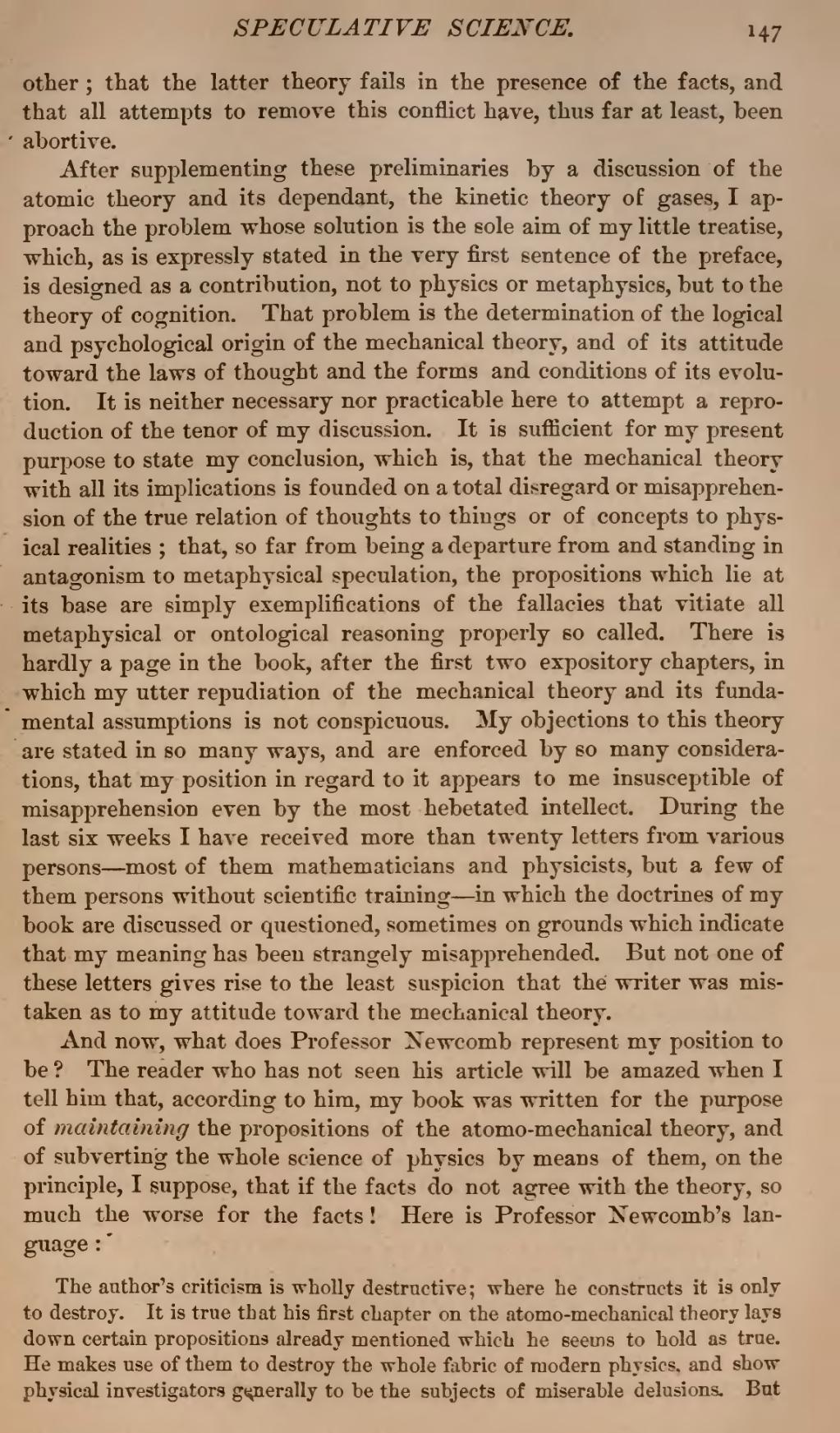other; that the latter theory fails in the presence of the facts, and that all attempts to remove this conflict have, thus far at least, been abortive.
After supplementing these preliminaries by a discussion of the atomic theory and its dependant, the kinetic theory of gases, I approach the problem whose solution is the sole aim of my little treatise, which, as is expressly stated in the very first sentence of the preface, is designed as a contribution, not to physics or metaphysics, but to the theory of cognition. That problem is the determination of the logical and psychological origin of the mechanical theory, and of its attitude toward the laws of thought and the forms and conditions of its evolution. It is neither necessary nor practicable here to attempt a reproduction of the tenor of my discussion. It is sufficient for my present purpose to state my conclusion, which is, that the mechanical theory with all its implications is founded on a total disregard or misapprehension of the true relation of thoughts to things or of concepts to physical realities; that, so far from being a departure from and standing in antagonism to metaphysical speculation, the propositions which lie at its base are simply exemplifications of the fallacies that vitiate all metaphysical or ontological reasoning properly so called. There is hardly a page in the book, after the first two expository chapters, in which my utter repudiation of the mechanical theory and its fundamental assumptions is not conspicuous. My objections to this theory are stated in so many ways, and are enforced by so many considerations, that my position in regard to it appears to me insusceptible of misapprehension even by the most hebetated intellect. During the last six weeks I have received more than twenty letters from various persons—most of them mathematicians and physicists, but a few of them persons without scientific training—in which the doctrines of my book are discussed or questioned, sometimes on grounds which indicate that my meaning has been strangely misapprehended. But not one of these letters gives rise to the least suspicion that the writer was mistaken as to my attitude toward the mechanical theory.
And now, what does Professor Newcomb represent my position to be? The reader who has not seen his article will be amazed when I tell him that, according to him, my book was written for the purpose of maintaining the propositions of the atomo-mechanical theory, and of subverting the whole science of physics by means of them, on the principle, I suppose, that if the facts do not agree with the theory, so much the worse for the facts! Here is Professor Newcomb's language:

